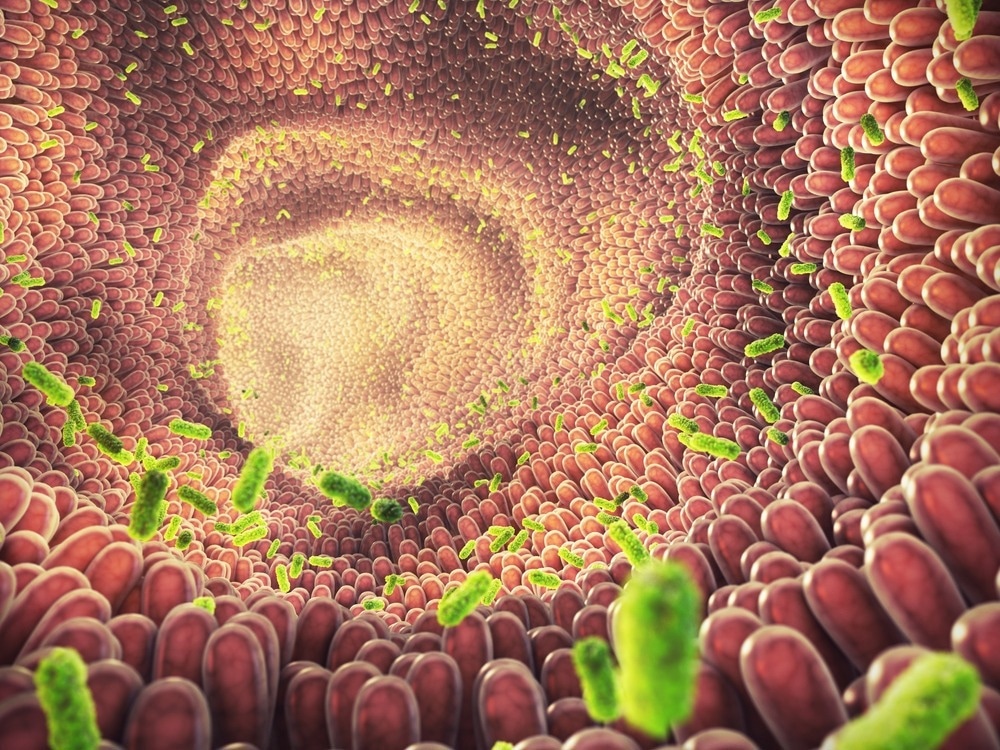A recent Baycrest study points to the possibility that the gut microbiome influences how nutrition and exercise impact brain health and dementia risk. Physicians and researchers could be able to improve dementia prevention efforts with the use of this knowledge.

Image Credit: nobeastsofierce/Shutterstock.com
Diet and exercise, which are known to have an impact on the gut microbiome, the community of bacteria, and other microorganisms that dwell in the guts, are frequent lifestyle interventions to lower dementia risk.
We know that imbalances in the microbiome are associated with impaired cognition. However, we don’t know much about the role of the microbiome when we use lifestyle interventions, such as diet and exercise, to support brain health. Can we tailor lifestyle interventions to specifically target the gut microbiome, and will this help to optimize their effects on cognition? In this review study, we aimed to address this gap in knowledge.”
Noah Koblinsky, Study Lead Author, Exercise Physiologist, and Project Coordinator, Rotman Research Institute, Baycrest
Koblinsky and his team evaluated all of the prior studies on food and exercise interventions that took into account the microbiome and brain health to achieve this goal. Journals of Gerontology: Series A published the study.
They discovered that, although more research is required to properly understand how, the gut microbiome does seem to play a role in how nutrition and exercise affect brain health.
Foods linked with a Mediterranean-style eating pattern, such as fiber and healthy fats, seem to have the best benefit for a healthy gut microbiome and brain, according to diet studies that indicated a significant impact of diet on the microbiome. In one study, diet’s effects on the microbiome and cognition were examined in 1,200 older adults.
For a period of 12 months, half of the participants were required to adhere to a Mediterranean-style diet; the other half were not. Cognitive performance significantly improved in the Mediterranean diet group.
Additionally, individuals who adhered to the diet more rigorously had microbiomes that were healthier, which is linked to higher brain function.
In a different study, scientists treated a sample of rats with antibiotics to “kill off” the gut microbiome. After that, the rats received microbiome transplants (fecal) from rats that had either been fed a healthy diet or an unhealthy diet.
Inflammation in the intestines and the brain was present in the rats who got the transplant from the unhealthy diet group, and they performed worse on tests of memory.
These results are consistent with the notion that nutrition affects brain health via the microbiome. Insufficient research on exercise was discovered by the researchers. Those that did, however, hypothesized that beginning exercise—more specifically, aerobic exercise—could alter both the gut microbiome and the health of the brain simultaneously.
The majority of the studies that the researchers examined focused on rodents and single dietary components (for example, fiber) rather than entire food patterns (like the Mediterranean diet) since this field of study is still in its infancy.
Overall, the study’s authors concluded that there is a definite need for further research on whole-diet and exercise interventions that integrate the microbiome and brain health, particularly in elderly people at risk of dementia.
Now that a diet and exercise randomized controlled trial is underway, the researchers are seeking funding to incorporate an examination of microbiome changes.
By better understanding how changes to the gut microbiome affect the relationship between lifestyle and brain health, we can strengthen existing lifestyle interventions and create new strategies to reduce dementia risk, helping older adults everywhere age fearlessly.”
Dr Nicole Anderson, Study Senior Author and Senior Scientist, Rotman Research Institute, Baycrest
Dr Anderson is also the Associate Scientific Director of Baycrest’s Kimel Family Centre for Brain Health and Wellness.
Source:
Journal reference:
Koblinsky, N. D., et al. (2022). The Role of the Gut Microbiome in Diet and Exercise Effects on Cognition: A Review of the Intervention Literature. Journals of Gerontology: Series A. doi.org/10.1093/gerona/glac166